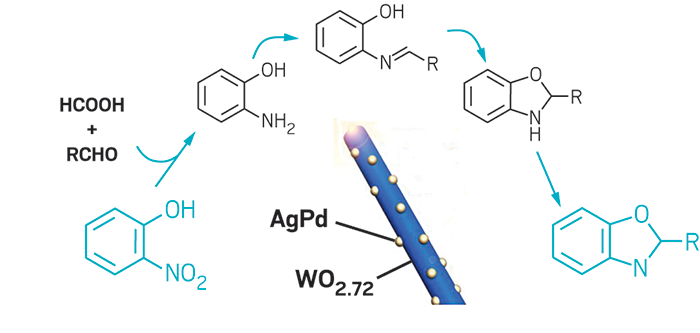Advertisement
Grab your lab coat. Let's get started
Welcome!
Welcome!
Create an account below to get 6 C&EN articles per month, receive newsletters and more - all free.
It seems this is your first time logging in online. Please enter the following information to continue.
As an ACS member you automatically get access to this site. All we need is few more details to create your reading experience.
Not you? Sign in with a different account.
Not you? Sign in with a different account.
ERROR 1
ERROR 1
ERROR 2
ERROR 2
ERROR 2
ERROR 2
ERROR 2
Password and Confirm password must match.
If you have an ACS member number, please enter it here so we can link this account to your membership. (optional)
ERROR 2
ACS values your privacy. By submitting your information, you are gaining access to C&EN and subscribing to our weekly newsletter. We use the information you provide to make your reading experience better, and we will never sell your data to third party members.
Environment
ACS, Pharma Initiative Awards First Grant
Joint effort toward greening of pharmaceutical industry targets amide reduction with its first research grant
by Stephen K. Ritter
February 8, 2007

The Pharmaceutical Roundtable of the Green Chemistry Institute, a division of the American Chemical Society, has awarded its first research grant as part of a broad effort to advance green chemistry and engineering practices in the global pharmaceutical industry. The $130,000 grant goes to chemistry professor Jianliang Xiao of the University of Liverpool, in England, whose group will seek to develop a cleaner, more efficient method of reducing amides to amines, an important transformation in drug synthesis.
Together with major pharmaceutical firms, the Green Chemistry Institute established the Pharmaceutical Roundtable in 2005. It formed as a working group made up of pharmaceutical industry representatives with a mission to help identify and overcome common drug discovery and process chemistry challenges. The group spent its first year singling out seven reactions and processes that need cost and environmental improvements and drawing up a wish list of five reactions that chemists would like to add to their research arsenals (C&EN, July 24, 2006, page 36).
Key reactions slated for improvement include amide syntheses as well as activation of hydroxyl substituents for nucleophilic substitutions. Among the wish-list items are the C—H activation of nonhalogenated aromatic compounds used in cross-coupling reactions and new fluorination methods that work under mild conditions. Two process priorities are developing solventless reactor cleaning and alternatives to polar aprotic solvents.
Last fall, the roundtable called for proposals to address the targeted reactions and processes; from a pool of 32 international applicants, it selected Xiao's work for the first grant. The group anticipates awarding $500,000 worth of grants for basic research in the next couple of years, and it's exploring the possibility of expanding the program by partnering with other funding agencies, according to Julie B. Manley, the program's coordinator.
Xiao and his coworkers, whose specialty is catalysis, will attack the "high interest" amide reduction reaction. It involves reducing the amide carbonyl group by hydrogenating the carbon atom. "The reduction is generally performed using hazardous metal hydrides, which generate stoichiometric amounts of waste," Xiao says. "Although amides can be reduced more attractively with hydrogen, currently available catalysts necessitate high temperature and high pressure." Xiao's group plans to uncover high-yield hydrogenation catalysts that work under milder conditions in reactions that can be carried out in water instead of an organic solvent.






Join the conversation
Contact the reporter
Submit a Letter to the Editor for publication
Engage with us on Twitter